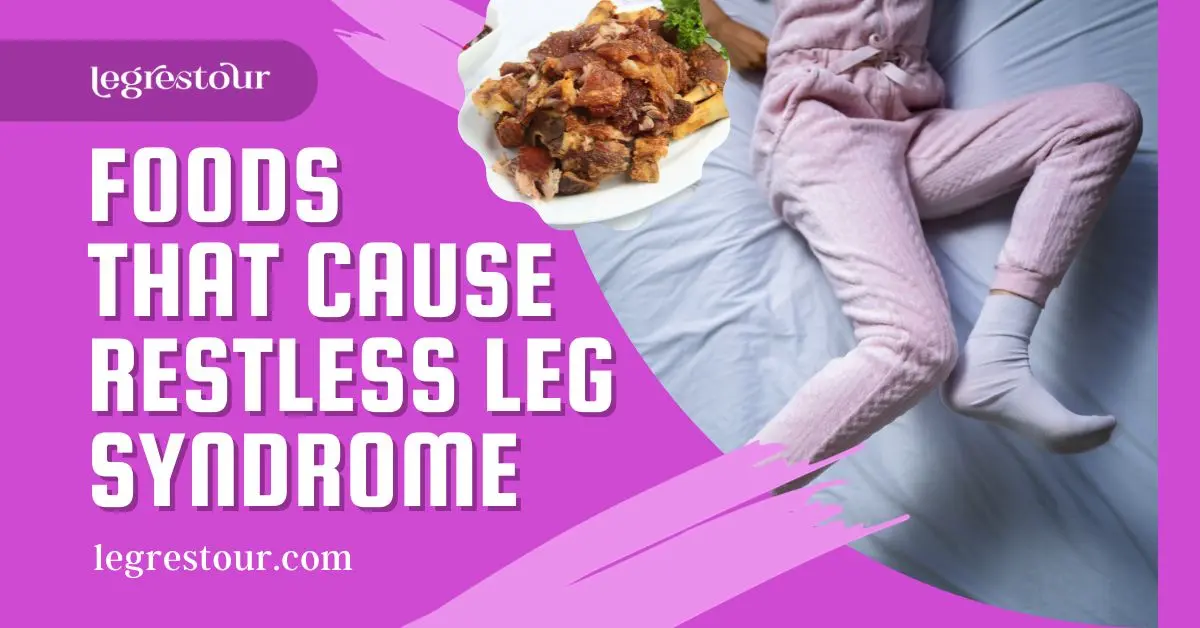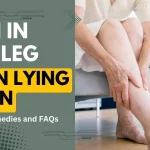Restless Leg Syndrome (RLS) is a condition that plagues many individuals, making their foot pain worse when resting. It’s an uncomfortable sensation that drives them to move their legs for relief constantly. But did you know that your diet might play a crucial role in exacerbating this condition? In this article, we’ll delve into the foods that cause restless leg syndrome, revealing the foods to avoid and those that can help alleviate your symptoms.
The MECE Framework Unveiled
Before we get into the specifics, let’s talk about the MECE Framework. What exactly is it, and why is it essential for RLS research? Understanding the MECE (Mutually Exclusive, Collectively Exhaustive) approach will help us explore the various aspects of this topic systematically.
Food Groups to Avoid
- High Sodium Foods: Excessive salt in your diet can make foot pain worse when resting. We’ll explore which foods are high in sodium and should be limited.
- Caffeine Culprits: That morning coffee might be your favourite pick-me-up, but caffeine can exacerbate RLS symptoms. Discover the sources of caffeine in your diet.
- Alcohol’s Role in RLS: Alcohol might relax you, but it can aggravate RLS. We’ll discuss the link between alcohol consumption and restless legs.
- Sugar and Artificial Sweeteners: Sweets and artificial sweeteners can trigger RLS in some individuals. Learn about the hidden culprits in your diet.
- High-Fat Diets: Foods rich in unhealthy fats may not only harm your overall health but also worsen RLS. Find out which high-fat foods to avoid.
Nutritional Deficiencies
- Iron Deficiency and RLS: Low iron levels can be a culprit in RLS. We’ll explain the relationship between iron and this syndrome.
- Magnesium’s Impact on RLS: Magnesium is an essential mineral, and its deficiency can contribute to RLS. Discover magnesium-rich foods to include in your diet.
- The Role of Vitamin D: Vitamin D plays a role in various bodily functions, including RLS. We’ll uncover how vitamin D can affect your condition.
The Impact of Food Additives
- Monosodium Glutamate (MSG): MSG is a common food additive that can worsen RLS symptoms. Learn about its sources in your diet.
- Artificial Food Colors and RLS: Artificial colors in your food can be a hidden trigger for RLS. We’ll discuss which foods to be cautious of.
- Nitrites and Nitrates: These preservatives can be problematic for RLS sufferers. Explore the foods containing these additives.
Triggering Beverages
- Soda and RLS: Sugary carbonated drinks may provide no relief to your RLS. We’ll explain why soda is on the watchlist.
- Energy Drinks: A Double Whammy: High caffeine content and sugar make energy drinks a big no-no for RLS sufferers. Understand the risks involved.
- The Hidden Dangers of Fruit Juices: Even seemingly healthy fruit juices can aggravate RLS. We’ll reveal their hidden dangers.
Hidden Ingredients in Processed Foods
- RLS and Hidden Sources of Gluten: Gluten can be hidden in many processed foods. We’ll discuss how gluten sensitivity can affect RLS.
- High Fructose Corn Syrup’s Sneakiness: High fructose corn syrup is a common ingredient with hidden dangers. Learn how it can worsen your RLS.
- Preservatives and RLS: Various food preservatives may not be your leg’s best friend. We’ll unveil the preserved foods to avoid.
The Dairy Dilemma
- Lactose Intolerance and RLS: Lactose intolerance can make RLS symptoms worse. Find out how to manage your dairy intake.
- Casein and Restless Leg Syndrome: Casein, a protein in dairy, might be a factor in your RLS. We’ll discuss its impact.
The Dark Side of Fast Food
- Trans Fats and RLS: Fast food often contains trans fats, which can be detrimental for RLS sufferers. Learn to identify these unhealthy fats.
- Excessive Use of Salt in Fast Food: Fast food is known for its high sodium content. We’ll uncover how this affects your RLS symptoms.
Mediterranean Diet as a Remedy
- A Mediterranean Introduction: The first stop is understanding how switching to a Mediterranean diet can bring sweet reprieve for RLS sufferers. We walk you through the diet essentials and their underlying benefits.
- Mediterranean Magic for RLS: Dive into the relevant nuances of the Mediterranean diet that can help pacify RLS symptoms.
- Your Mediterranean Daily Integration: Pick up tips on how to weave Mediterranean flavours into your everyday meals to reduce RLS disturbance.
Personalized Diet Plans
- Your Diet, Your Way: Each body is different, and hence, we stress the importance of personalizing your diet plan to match your unique needs.
- Nutritionist Know-How: Recall the age-old saying two heads are better than one? Consult with a nutritionist to develop an RLS-friendly diet, tailor-made for you.
Case Studies
- Success Stories: Hear from individuals who tamed their RLS symptoms with diet alterations and gain inspiration.
- Ripples of Diet Changes: Understand how tweaking what’s on your plate can bring about a transformation in your RLS experiences and life quality.
The Road to Recovery
- Life Tweaks for RLS Relief: Besides diet, a few lifestyle adjustments can create a tangible difference in controlling your RLS.
- Movement as Medicine: Find out how exercising can lighten RLS symptoms and uplift your overall well-being.
- Keeping Calm with RLS: Stress acts as a catalyst for RLS. We share stress-busting techniques to help soothe your RLS.
Alternative Therapies
- Acupuncture for RLS: Some individuals with RLS have found acupuncture beneficial. Consider this alternative therapy and its potential for you.
- Yoga – The Gentle Way to RLS Relief: Embrace the practice of yoga, a gentle exercise that may offer respite from RLS symptoms.
Medication and RLS
- The Medication Option: When diet and lifestyle alterations aren’t fully addressing your RLS, medication can come into play. We guide you through the available alternatives.
- Medication Scope: Navigate through the pros and cons of taking medication for RLS management.
Conclusion
To sum things up, we shed light on foods you might want to avoid with RLS, and different dietary strategies to manage this condition better. By implementing simple, positive changes to your diet and overall lifestyle, enduring RLS becomes much easier.
I think It’s important for you: Best Office Chair for Leg Pain
FAQs that you might have:
What is RLS?
Gain a firm grasp of what Restless Leg Syndrome implies.
Can diet completely cure RLS?
Delve into the efficacy of diet in managing RLS and set realistic expectations.
RLS-friendly food substitutes?
Unearth food alternatives that can comfortably fit into your RLS diet.
When does diet start showing results?
Get an idea of how long it takes for dietary changes to affect RLS symptoms.
Any food groups that can alleviate RLS discomfort?
Explore foods that could potentially bring relief from RLS symptoms.



